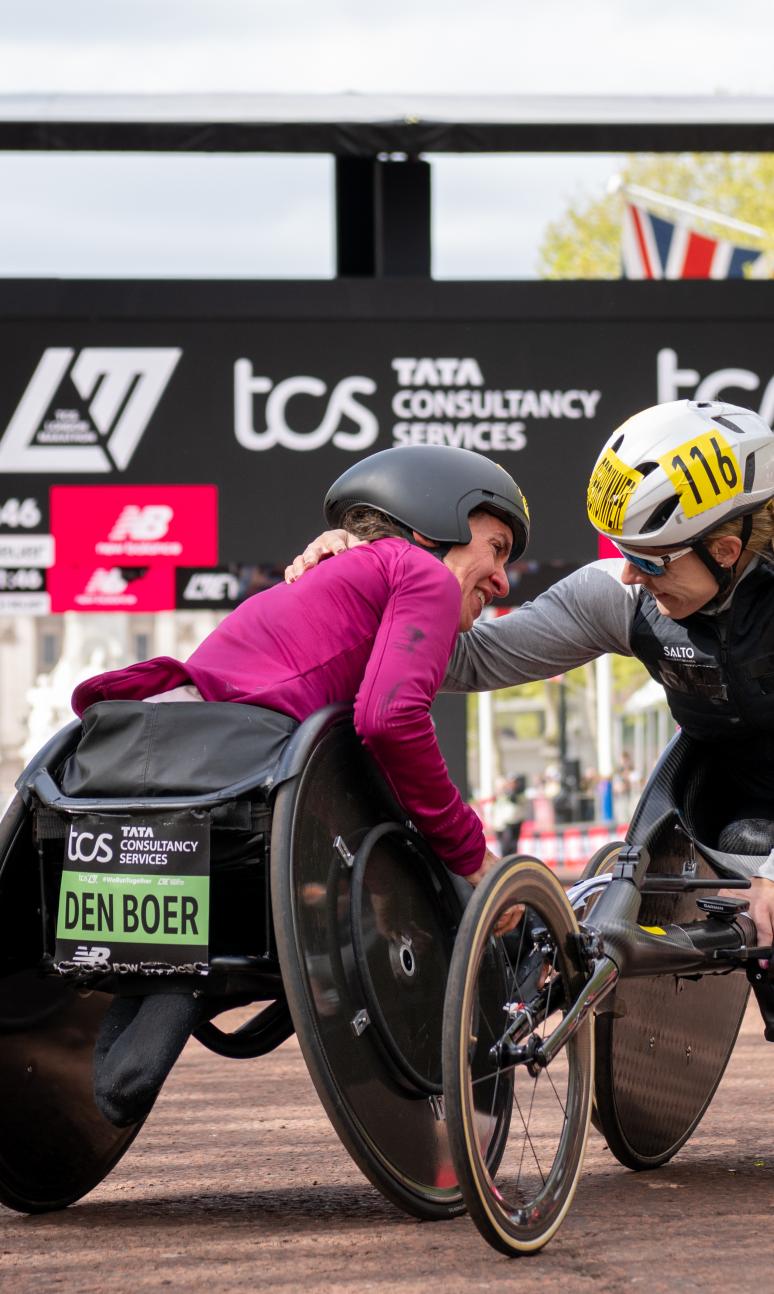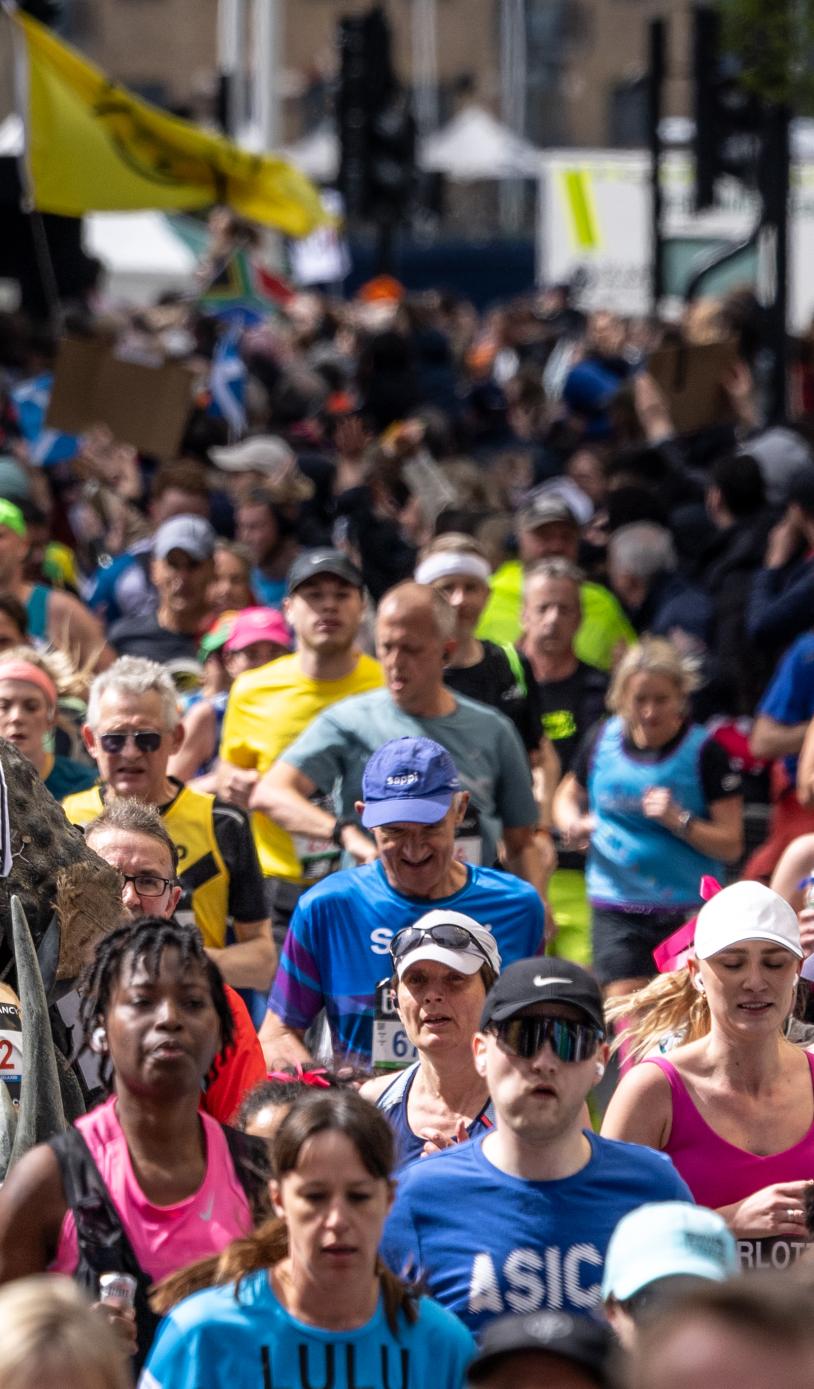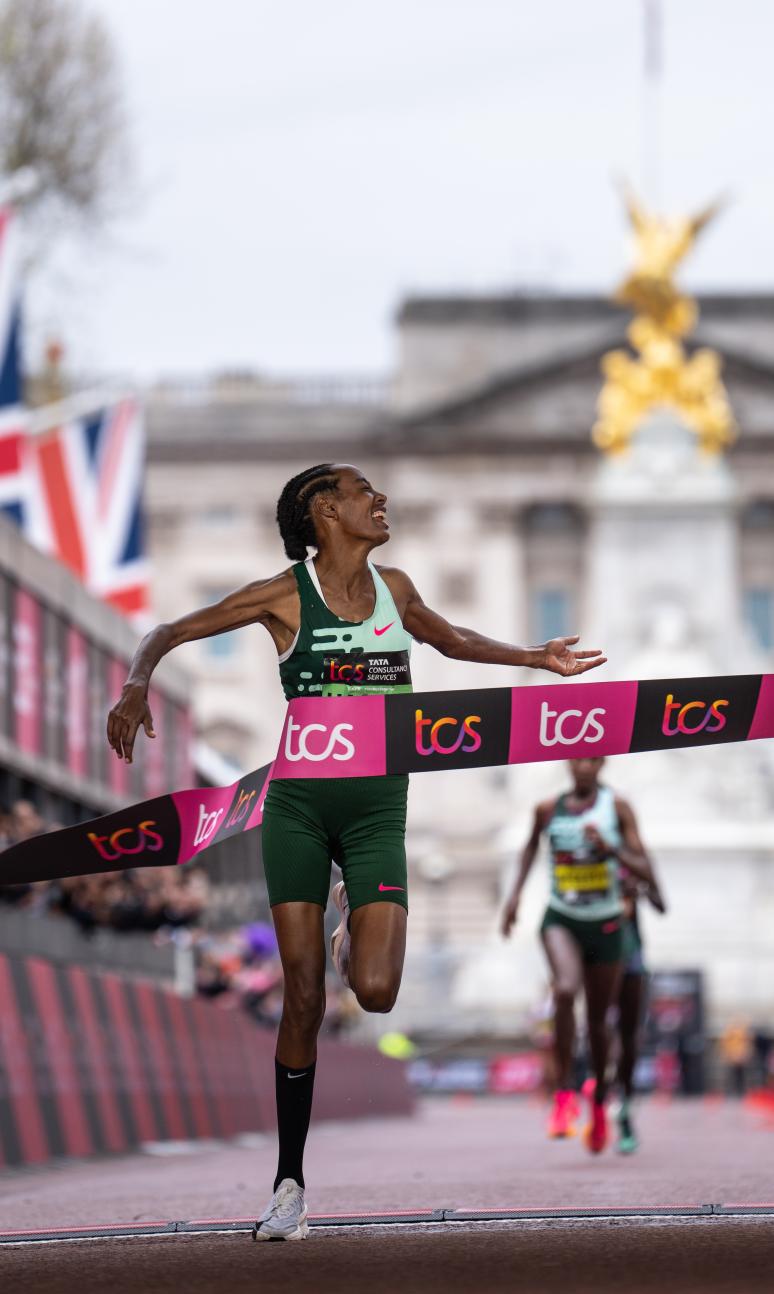

Media resources
The London Marathon has become an annual, inspiring and colourful fixture in the world’s sporting calendar since the inaugural race on 29 March 1981.
More than 1.3 million people have completed the course, over a £1.3 billion has been raised for charity and there have been countless amazing tales of human achievement.
Inspired by the New York City Marathon, which was established in 1970, Olympic steeplechase medallists Chris Brasher and John Disley were determined that the London Marathon would showcase the very best of the capital. They also declared the event would help people ‘to have fun, and provide some happiness and sense of achievement in a troubled world’.
The event captivated people’s imagination from the off, with more than 22,000 runners applying to take part in the first race. However, the original capacity was capped due to safety reasons, so there were just 7,747 runners accepted into the race – a mere fraction of the 45,000-plus runners we see in the modern versions of the event.
Home hand-in-hand
There were 6,255 finishers – led home by American Dick Beardsley and Norwegian Inge Simonsen, who crossed the Finish Line hand-in-hand on a rain-swept Constitution Hill. The duo recorded a time of two hours, 11 minutes and 48 seconds while creating a friendship that has lasted a lifetime.
Meanwhile, Joyce Smith broke the British record to win the women’s race in 2:29:57. Smith triumphed again in 1982 as Hugh Jones became the first male British winner. It is the one and only time that Britons have won both male and female races.
The following year, male and female wheelchair races were introduced, with Britain’s Gordon Perry (3:20:07) and Denise Smith (4:29:03) taking the titles. It’s an event that David Weir and Dame Tanni Grey-Thompson have gone on to dominate, with a record eight and six victories respectively.
World records smashed
Norway’s Ingrid Kristiansen dominated the women’s race in the mid-1980s – winning four titles. She is still the only woman to achieve this feat. At the age of 26, Kenya’s two-time winner Brigid Kosgei has time on her side in her bid to match and possibly surpass Kristiansen’s achievement that dates back to 1988.
World records have been beaten six times at the London Marathon. Norway’s Grete Waitz became the first London Marathon world record holder in 1983, with a time of 2:25:29. Her compatriot Ingrid Kristiansen bettered that two years later with 2:21:06.
Great Britain’s Paula Radcliffe broke the world record twice – 2:15:25 for a mixed marathon in 2003, which remains a course record to this day. Kenya’s Mary Keitany was also a world record breaker in 2017, with a time of 2:17:01. Peres Chepchirchir took the women’s only world record in London in 2024, in a time of 2:16:16.
The greatest of all time
The only man to set a world record at the London Marathon is the USA’s Khalid Khannouchi, who ran a time of 2:05:38 in 2002. The men's course record is 2:01:25, set by Kenyan long-distance runner Kelvin Kiptum in 2023.
Switxerland's Marcel Hug set the men’s wheelchair race course record of 1:23:44 in 2023 and the women’s wheelchair course record belongs to Switzerland’s Catherine Debrunner, who finished in 1:38:24 in 2022.
Consecutive victories
Only five athletes have won three consecutive London Marathon titles – Mexico’s Dionicio Cerón (1994-96) in the men’s race, Germany’s Katrin Dörre-Heinig (1992-94) in the women’s race, David Weir (2006-08) in the men’s wheelchair race, and both Francesca Porcellato (2003-06) of Italy and the USA’s Tatyana McFadden (2013-2016) have gone one better by winning four in a row.
No doubt there will be many more twists, turns and tales of the incredible as the London Marathon enters its fifth decade – we hope you’ll be watching the drama unfold alongside us.
